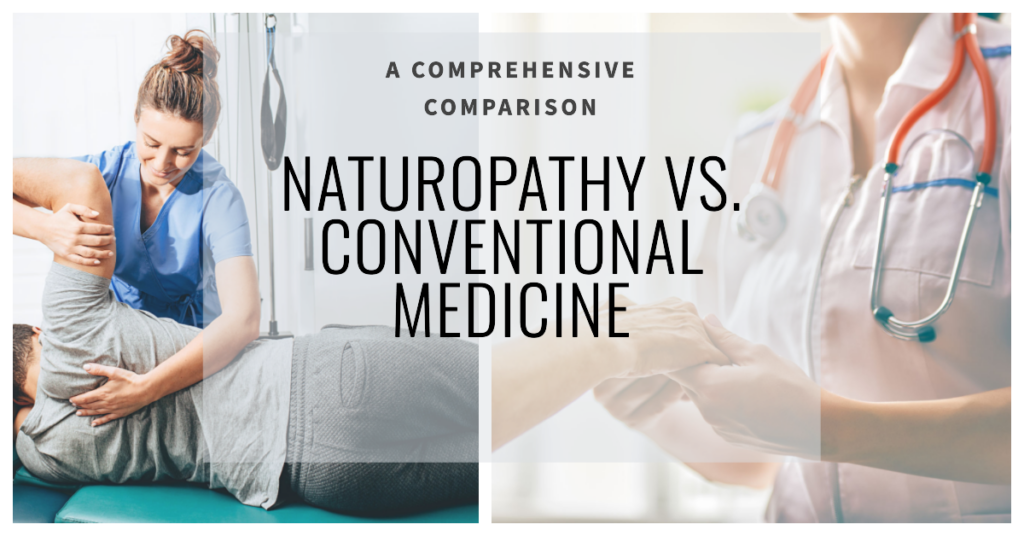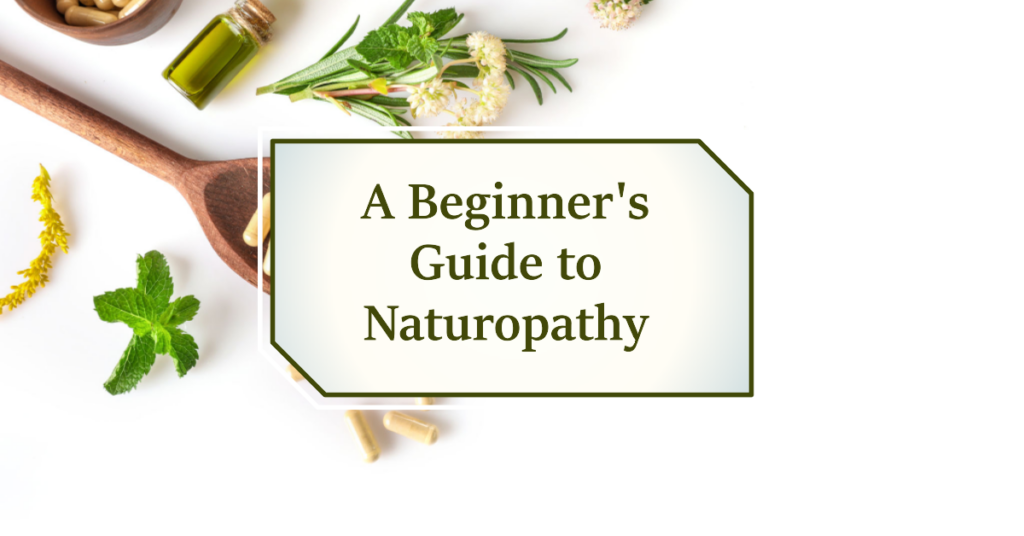What Can You Do With a Naturopathy Certification

Embarking on a journey towards a naturopathy certification opens up a realm of possibilities for those passionate about natural health and holistic wellness. This certification is not just a credential—it’s a commitment to nurturing health with the earth’s bounty, offering a harmonious alternative to conventional medicine’s approach. Let’s dissect the subject in complete depth and explore what you can do with a naturopathy certification!
Explore the Possible Careers in the Field of Naturopathy
What Is Naturopathy?
Naturopathy is a distinct system of primary health care that emphasizes prevention, treatment, and the promotion of optimal health through the use of natural and non-invasive methods and materials. It is grounded in the following principles:
The Healing Power of Nature (Vis Medicatrix Naturae):
Naturopathy holds that the body has an inherent ability to heal itself. Naturopathic practitioners facilitate this natural process by identifying and removing obstacles to health and recovery.
Identify and Treat the Cause (Tolle Causam):
Instead of merely suppressing symptoms, naturopaths seek to identify and remove the underlying causes of illness.
First Do No Harm (Primum Non Nocere):
Naturopathic practitioners choose the most natural, least invasive, and least toxic therapies to minimize the risk of harmful side effects.
Doctor as Teacher (Docere):
One of the key roles of a naturopath is to educate and encourage self-responsibility for health. They also recognize and employ the therapeutic potential of the doctor-patient relationship.
Treat the Whole Person (Holism):
Naturopathy recognizes the patient as a whole, taking into account physical, mental, emotional, genetic, environmental, and social factors that contribute to an individual’s health status.
Prevention:
Naturopathic practitioners emphasize disease prevention, assessment of risk factors, and hereditary susceptibility to disease, and make appropriate interventions to prevent illness.
Wellness:
Wellness follows the establishment and maintenance of optimum health and balance. Wellness is a state of being healthy, characterized by positive emotion, thought, and action.
Naturopathy is an evolving practice that incorporates a wide array of natural therapies, including nutrition, lifestyle counseling, herbal medicine, and more. It aligns with many individuals’ desire for a more natural approach to health care and an active role in their own wellness journey.
Where You Can Work With a Naturopathy Certification
Embarking on a career with a naturopathy certification opens doors to a world where health and wellness take center stage. The most common career opportunities for individuals with this certification reflect the growing desire for natural and holistic health solutions.
Establish a Private Practice
As primary care providers, naturopathy practitioners often establish private practices, offering comprehensive health care. They can work with patients of all ages, providing naturopathic advice for a wide range of health issues.
Join Integrative Medicine Clinics
Naturopathic doctors or naturopathy practitioners are well-positioned to join integrative medicine clinics. In these settings, they collaborate with medical doctors, osteopaths, and other health professionals to provide holistic patient care.
Health and Wellness Consulting
With an emphasis on prevention and optimizing wellness, naturopaths consult in various settings, such as corporate wellness programs, spas, retreat centers, and with individual clients seeking to improve their health.
Education and Mentorship
Certified naturopaths often take on roles as educators, teaching in naturopathic medical colleges, continuing education programs, and community workshops, passing on their knowledge to the next generation of healthcare providers and health-conscious individuals.
Research
Research is a growing field for naturopaths, as there is an increasing need to validate and improve naturopathic treatments through clinical trials and other research methodologies.
Nonprofit and Global Health
Naturopathy practitioners can work for nonprofit organizations, contributing to public health campaigns, and global health initiatives that emphasize sustainable, natural care, especially in under-resourced communities.
Specialized Naturopathic Services
Specializations within naturopathy, such as women’s health, children care, sports medicine, and geriatrics, offer opportunities for naturopaths and naturopathy practitioners to focus on specific demographics.
Regulatory and Professional Associations
Professional naturopathic associations, like the American Association of Naturopathic Physicians (AANP) or the World Naturopathic Federation (WNF) and regulatory boards need certified NDs to help shape the profession, establish standards, and govern practice to ensure public safety and professional integrity.
Telehealth Services
With the rise of digital health, naturopaths and naturopathy practitioners are increasingly providing services online, offering consultations, health coaching, and personalized wellness plans through telehealth platforms.
A certification in naturopathy represents a commitment to a healing philosophy that prioritizes natural therapies, patient education, and a holistic approach to health, making naturopathy professionals valuable contributors in a variety of contexts.
Salary Insights
Before we dive into salary details, it’s essential to distinguish between naturopathic doctors (NDs) and naturopathy practitioners. NDs are often medically trained and have the authority to diagnose and treat patients, while naturopathy practitioners focus on holistic approaches to support health and wellness, usually without the same level of medical training or diagnostic responsibility.
In this section, we’re focusing exclusively on the career opportunities and salary expectations for naturopathy practitioners.
Table 1: How Much Naturopathy Practitioners Earn
| Factor | Insight |
|---|---|
| Average Salary (US) | $113,499 per year (base average), with an estimated total pay of $124,341 per year according to Glassdoor. Salary.com reports a similar average of $114,024 per year. |
| Experience | More experienced practitioners are likely to earn higher salaries. |
| Client Volume | Earnings can increase with a larger client base. |
| Practice Setting | Geographic location and the type of practice setting can influence income. |
| Additional Income | Many practitioners supplement their income through teaching, product sales, or writing. |
| Salary Variability | Actual salaries can vary widely from the average figures provided. |
How to Get Your Naturopathy Certification
Please note that the guidance provided here is aimed at those looking to become naturopathy practitioners, not naturopathic doctors (NDs).
The path to becoming a naturopathic doctor involves more extensive education, including medical training, and comes with a broader scope of practice and responsibilities, such as the ability to diagnose and treat medical conditions. Read this article from our blog to understand the differences between these two professions.
In contrast, a naturopathy practitioner focuses on holistic and preventive health strategies to support well-being without the medical prerogatives of an ND.
If you’re passionate about natural health and wellness and are looking for a career that aligns with these interests, becoming a naturopathy practitioner through accredited online courses could be an excellent fit for you.
Online Courses to Get a Naturopathy Certification
Online courses offer flexibility and convenience, allowing you to study at your own pace and fit your education around other commitments. These courses typically cover a wide range of topics, including herbal medicine, nutrition, homeopathy, etc.
Indeed, naturopathy practitioner online courses offer many advantages:
- Comprehensive Assessments: Online courses typically include quizzes, tests, and assessments to ensure that students understand the material and to provide feedback on their progress.
- Practical Exercises: At the end of modules, students can expect to engage in practical exercises that simulate real-life scenarios, helping to bridge the gap between theory and practice.
- Interactive Online Community: Programs offer access to an online community of fellow students and instructors for support, discussion, and collaboration.
- Multimedia Learning Materials: Courses often come with a range of learning materials, including video lectures, interactive modules, and digital textbooks.
- Flexible Scheduling: Students can study at their own pace, fitting their learning around other commitments thanks to the flexible nature of online courses.
- Continuous Updates: As the field of naturopathy evolves, online courses are regularly updated to reflect the latest research and practices.
- Certification Upon Completion: After fulfilling all course requirements, students receive a certification, validating their knowledge and skills in naturopathy.
Exploring Online Naturopathy Education: Course Types and Paths to Certification
Each course type serves a unique purpose within the broader spectrum of naturopathic education, whether it’s laying the groundwork for a new career, expanding one’s expertise, or fulfilling continuing education requirements. Explore the options to find the path that aligns with your aspirations in the field of natural health.
Table 2: Types of Online Naturopathy Courses for Certification and Continuing Education
| Course Type | Description | Purpose |
|---|---|---|
| Accredited Online Naturopathy Certification | Courses from institutions accredited by recognized naturopathic associations. | To obtain a recognized certification in naturopathy. |
| Continuing Education (CE) Courses | Short courses designed to provide additional training and education to current practitioners. | To fulfill ongoing CE requirements for practitioners; can also update or expand existing knowledge. |
| Introductory Naturopathy Programs | Basic courses for individuals new to the field or with an interest in naturopathic methods. | To introduce the concepts and basic principles of naturopathy; a stepping stone to more advanced courses. |
| Specialization Courses | Focused courses on specific areas within naturopathy, such as herbalism, nutrition, or homeopathy. | For practitioners to specialize in a particular area of naturopathy. |
| Diploma Programs | Comprehensive programs that cover a wide range of naturopathic topics. | To provide a broad education in naturopathy, often leading to a diploma. |
| Workshop and Seminar Series | Live or pre-recorded sessions focusing on specific topics or skills. | For interactive learning and practical skills development in a particular area of naturopathy. |
| Naturopathy for Healthcare Professionals | Courses tailored for professionals like nurses, doctors, or chiropractors who want to integrate naturopathy into their practice. | To enable existing healthcare professionals to add naturopathic methods to their services. |
| Pathway to Becoming a Naturopathic Doctor (ND) | A structured educational route that involves completing a degree from a naturopathic medical school accredited by the CNME, passing the NPLEX, and obtaining a license in a state or province that regulates naturopathy. | To meet the requirements to legally practice as a Naturopathic Doctor. |
You can deepen your understanding of naturopathy with our comprehensive online naturopathy course. Designed to provide you with a robust foundation in the field, our program is the perfect stepping stone for those seeking to expand their knowledge and skills in natural medicine. Whether you’re aiming to enrich your practice or pursuing continuing education credits (CEs), our curriculum is tailored to equip you with the practical insights and theoretical background needed in today’s diverse wellness landscape. With our course, not only do you gain valuable information, but you also have the opportunity to earn CEs that can help maintain your licensure and enhance your professional development.
If you are interested in an other holistic career path, you may want to read our article: What Can You Do with a Holistic Nutrition Certification.
Naturopathy Licensure and Accreditation: A Guide for the USA, Canada, and Beyond
The path to becoming a naturopathic professional varies widely depending on the country and even the region within countries. Here, we explore the licensure and accreditation landscape for naturopathy in the USA, Canada, and other key English-speaking countries.
Naturopathy Licensure and Accreditation in the USA
Naturopathy practitioners, who focus on wellness and preventive strategies without the same level of medical training as NDs, often do not have stringent licensing requirements. However, certification from bodies such as the American Naturopathic Certification Board (ANCB) can enhance credibility and signify adherence to certain professional standards.
Licensure in Canada
Canada’s approach to licensing NDs is similar to the USA, with regulated provinces requiring graduation from an accredited program and passing a board exam. In unregulated provinces, while NDs may practice, their title and scope may not be legally protected.
For naturopathy practitioners, regulation is less common, and certification varies. Practitioners often pursue certificates from recognized natural health schools or associations, which may not be as extensive as ND programs but still cover core naturopathic principles and practices.
Naturopathy in the United Kingdom, Australia, and New Zealand
In countries such as the United Kingdom, Australia, and New Zealand, the profession is not as highly regulated as in North America. Practitioners may voluntarily register with naturopathic associations, and while some may have comprehensive training, others may hold various levels of qualifications. Accreditation and licensure are not as uniformly required, and the public is encouraged to consult with reputable bodies like the General Naturopathic Council in the UK or the Naturopaths and Herbalists Association of Australia for guidance.
In each of these countries, the scope of practice for naturopathy practitioners can vary significantly, and it’s crucial for individuals to research the specific requirements and professional standards in their region. Both NDs and naturopathy practitioners contribute uniquely to the healthcare landscape, and their training and certification paths reflect the diversity within the field of naturopathic medicine.
In conclusion, we’ve journeyed through the essence of what it means to hold a naturopathy certification—a testament to one’s dedication to the natural approach to health and wellness. As we’ve seen, naturopathy certification is more than just an academic achievement; it’s a stepping stone to becoming a pivotal part of a community that values holistic health and the power of natural healing. For those ready to embark on this transformative path, the future is bright with the promise of growth, learning, and the opportunity to contribute to a healthier world.
FAQs About Naturopathy Certification
- What is the highest degree in naturopathy?
Answer: The highest degree in naturopathy is a Doctorate of Naturopathic Medicine (ND), which entails graduate-level educational programs and clinical training. - Is a naturopathic doctor the same as a holistic doctor?
Answer: A naturopathic doctor is not the same as a holistic doctor; the former specifically trains in naturopathic medicine, while the latter may integrate various methods and disciplines. - Do I need to be a doctor to practice naturopathy?
Answer: To practice naturopathy, you do not need to be a doctor; certification allows you to advise on natural health without the qualifications to diagnose or treat illnesses like a medical doctor. - What will I learn in an online naturopathy course?
Answer: In an online naturopathy course, you’ll learn foundational principles of naturopathic medicine, such as using diet and lifestyle to support health, along with the use of natural remedies. - Where can I find more information about naturopathy certification?
Answer: More information about naturopathy certification can be found through accredited naturopathy schools, online courses, and naturopathic professional associations.











Responses